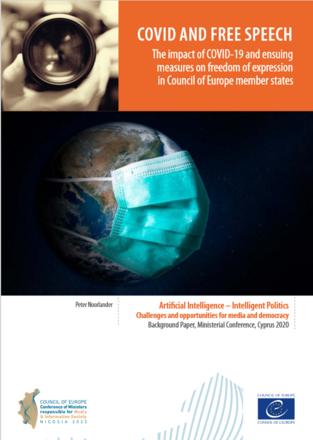
In line with previous annual reports on freedom of expression, the report explores the impacts of measures taken by authorities to contain COVID-19 under four headings:
a. legal and regulatory frameworks;
b. the safety of journalists and others who speak up;
c. the media environment; and
d. the promotion of quality journalism and media literacy.
The pandemic has demonstrated a great desire for quality information, with a significant part of the public returning to traditional and public service media as main source of news.
Member states should capitalise on this newly re-discovered trust in the traditional media and redouble their efforts to promote quality journalism by creating a favourable environment and supporting sustainable, pluralist journalism, including at local level.
However, while demand for quality news and information has gone up, the ability of the media to deliver has been greatly diminished.
Among the key actions to be implemented, there is the invitation to Member States to create an enabling environment for quality journalism, including by promoting media pluralism, promoting secure working conditions for journalists and ending undue political or business interference in editorial policies, thereby strengthening safeguards for the independence of public media during crisis situations.
Tags: COVID-19The content of this article can be used according to the terms of Creative Commons: Attribution-NonCommercial 4.0 International (CC BY-NC 4.0) . To do so use the the wording "this article was originally published on the Resource Centre on Media Freedom in Europe" including a direct active link to the original article page.

